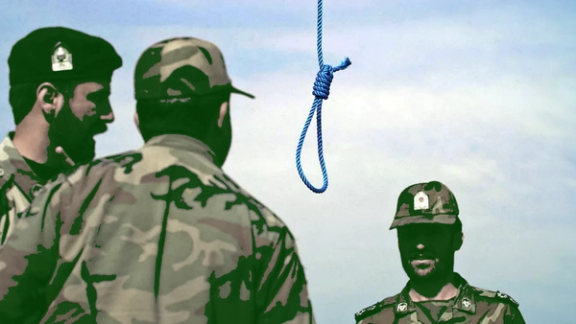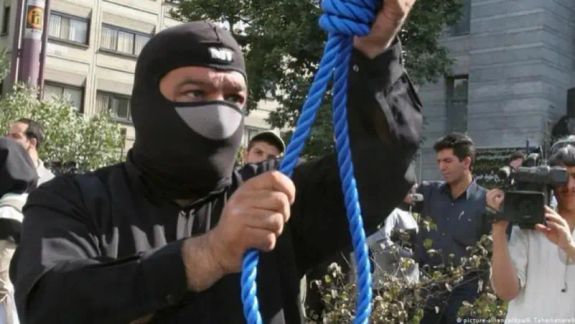Iran’s execution spree continues with eight more prisoners hanged

The Iranian government executed at least eight more prisoners early Monday morning, according to reports from human rights groups, with hundreds already hanged in 2024.

The Iranian government executed at least eight more prisoners early Monday morning, according to reports from human rights groups, with hundreds already hanged in 2024.
This latest round of executions, which took place in Yazd and Shiraz prisons, is part of a broader trend that has seen the number of state-sanctioned killings skyrocket in 2023 and 2024, drawing international condemnation and sparking renewed calls for an end to the death penalty in Iran.
The systematic execution of prisoners has become a routine practice, drawing condemnation from international human rights organizations. As the Iranian government intensifies its crackdown on dissent, political prisoners in the women's ward of Evin Prison have vowed to continue their fight against the death penalty, despite the brutal pressures they face.
Haalvash, a website dedicated to Baluch community news, reported that five individuals were executed in Yazd Prison. These included three Baluch citizens and two Afghan nationals, all condemned on charges related to drugs or murder. The Oslo-based Iran Human Rights organization confirmed that three more people were executed in Adelabad Prison in Shiraz too.

Amnesty International says 853 people were executed in Iran in 2023, marking the highest number of executions in the country in the last eight years. This figure represents a 48% increase from 2022 and a 172% spike from 2021. Iran's Islamic government executed 345 people this year, until August 9. The only time when there were fewer execution was during election periods in March and June.
This wave of executions is part of a broader strategy by the Iranian government to instill fear and suppress any form of resistance. Since the nationwide protests in 2022, triggered by the death of Mahsa Amini in morality-police custody, Iran has weaponized the death penalty as a means of crushing dissent and tightening its authoritarian grip on the nation.
Meanwhile, Maryam Yahyavi, a political prisoner in Evin Prison, confirmed reports of a recent raid by guards on women protesting death sentences. In a letter published Sunday, Yahyavi described the violent crackdown: "They gathered all their strength in their arms and struck us down."
The women had gathered as part of the “No to Executions Tuesdays” campaign, protesting the execution of Reza Rasaei, a 34-year-old Iranian arrested during the 2022 anti-government protests in Kermanshah. Rasaei was executed earlier this month, and those who dared to protest his death faced repercussions, including beatings and a ban on visits and phone calls.
Despite the measures, the resolve of political prisoners remains unshaken. Yahyavi stressed that their opposition to the death penalty would continue unabated.
Another political prisoner, Golrokh Iraee, also emphasized in a letter published Monday that all citizens, regardless of their political stance, must condemn and actively oppose the death penalty.
The UN High Commissioner for Human Rights, Volker Türk, recently expressed deep concern over the ongoing executions in Iran.